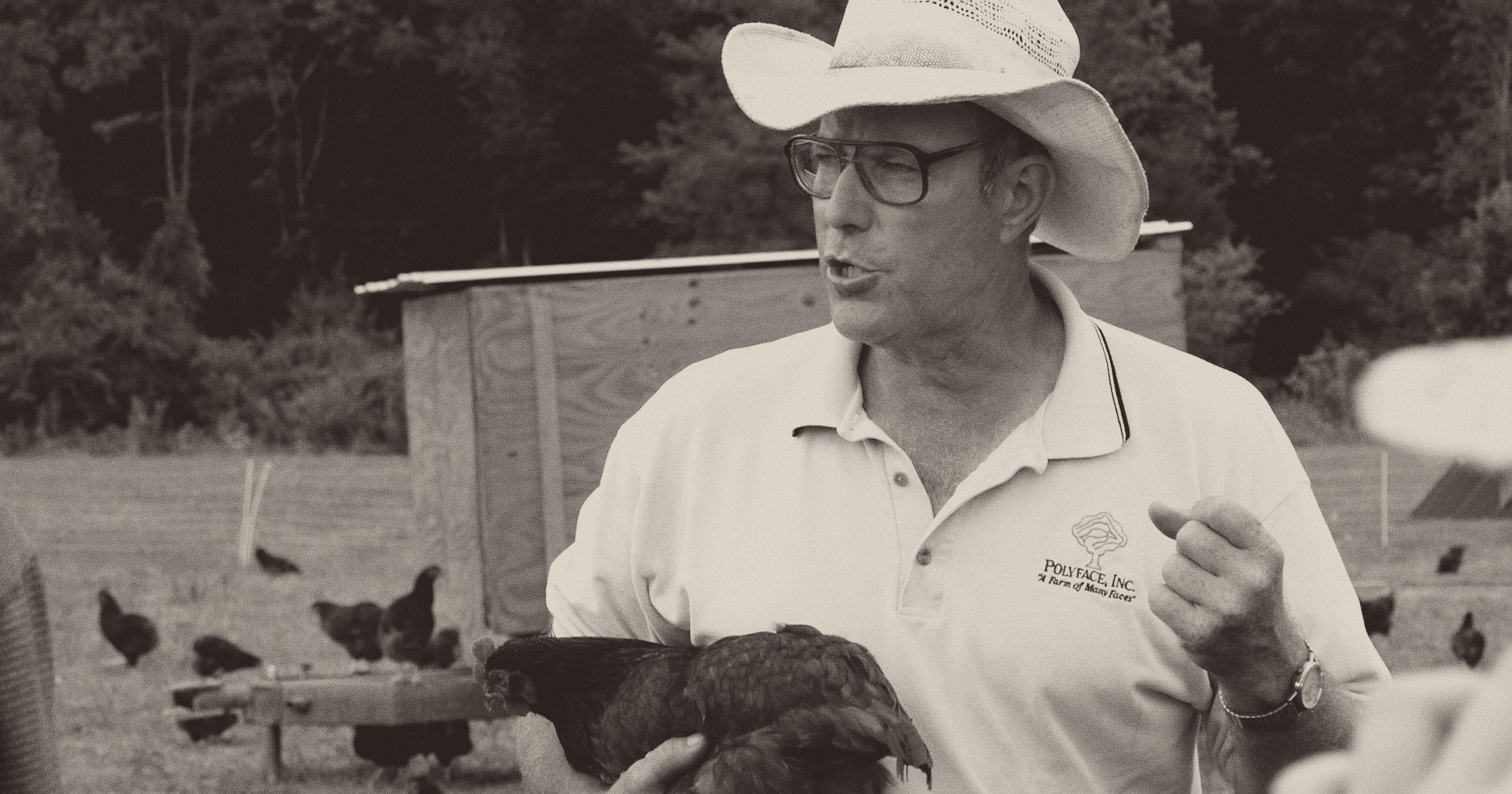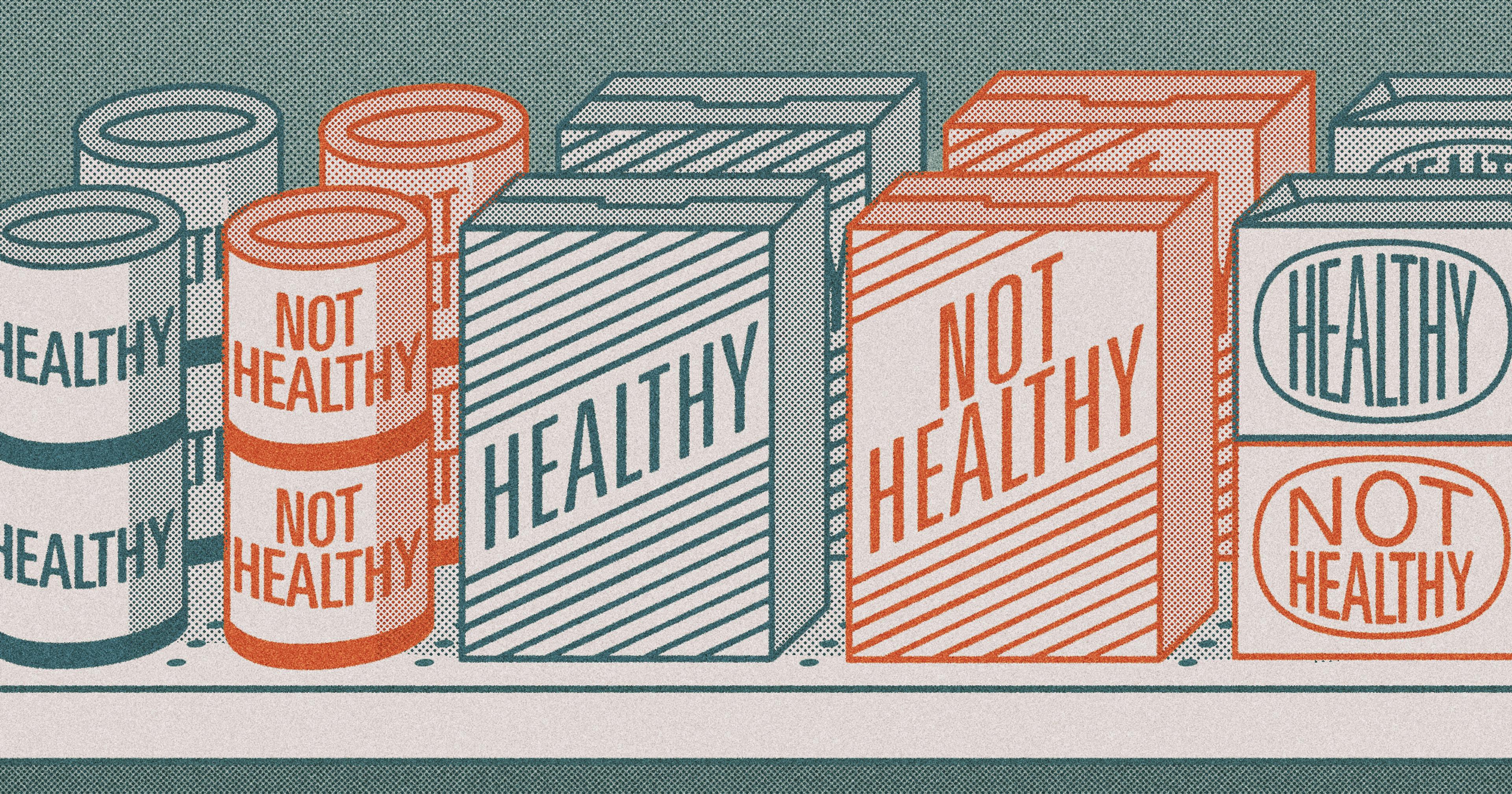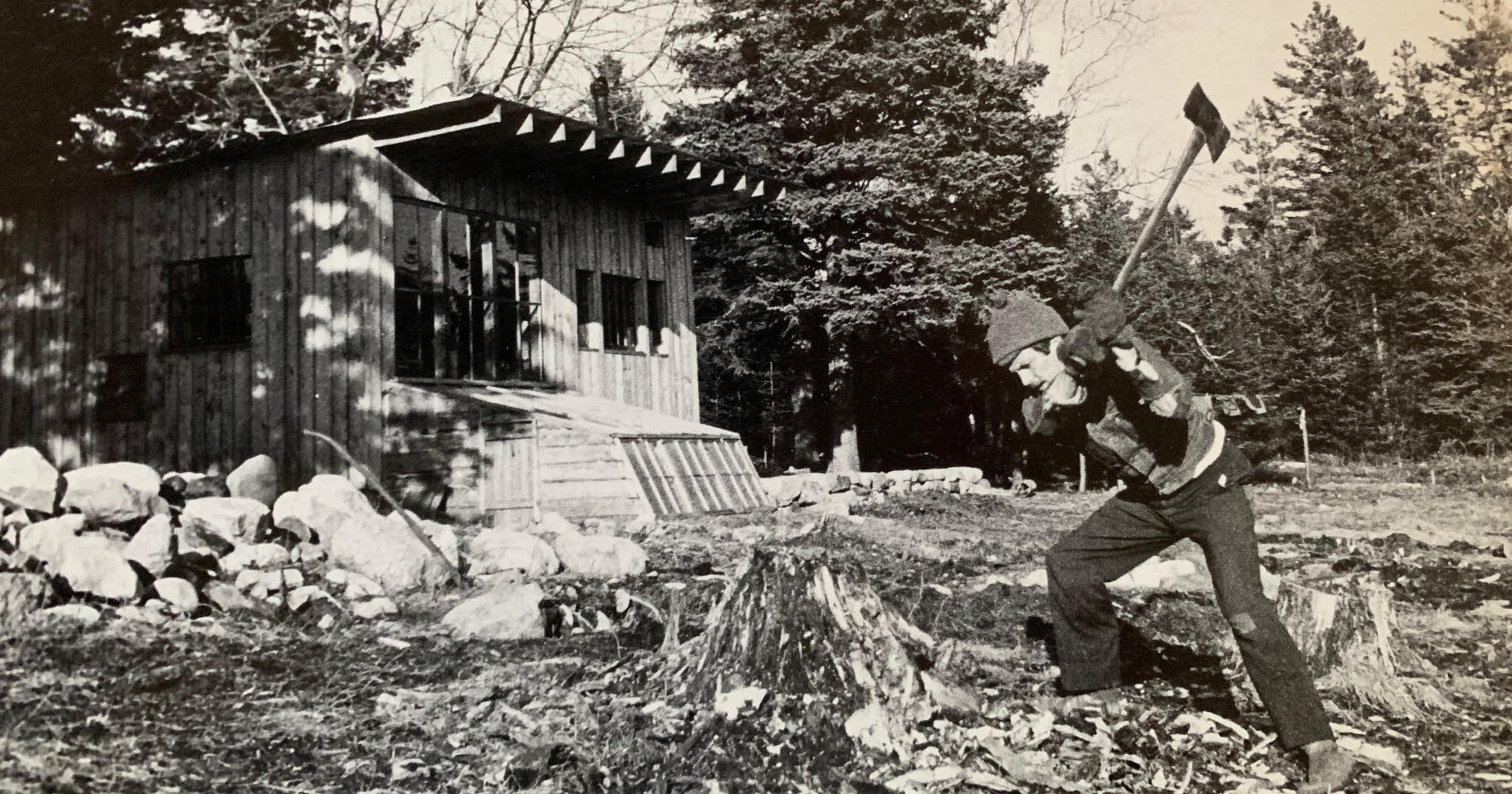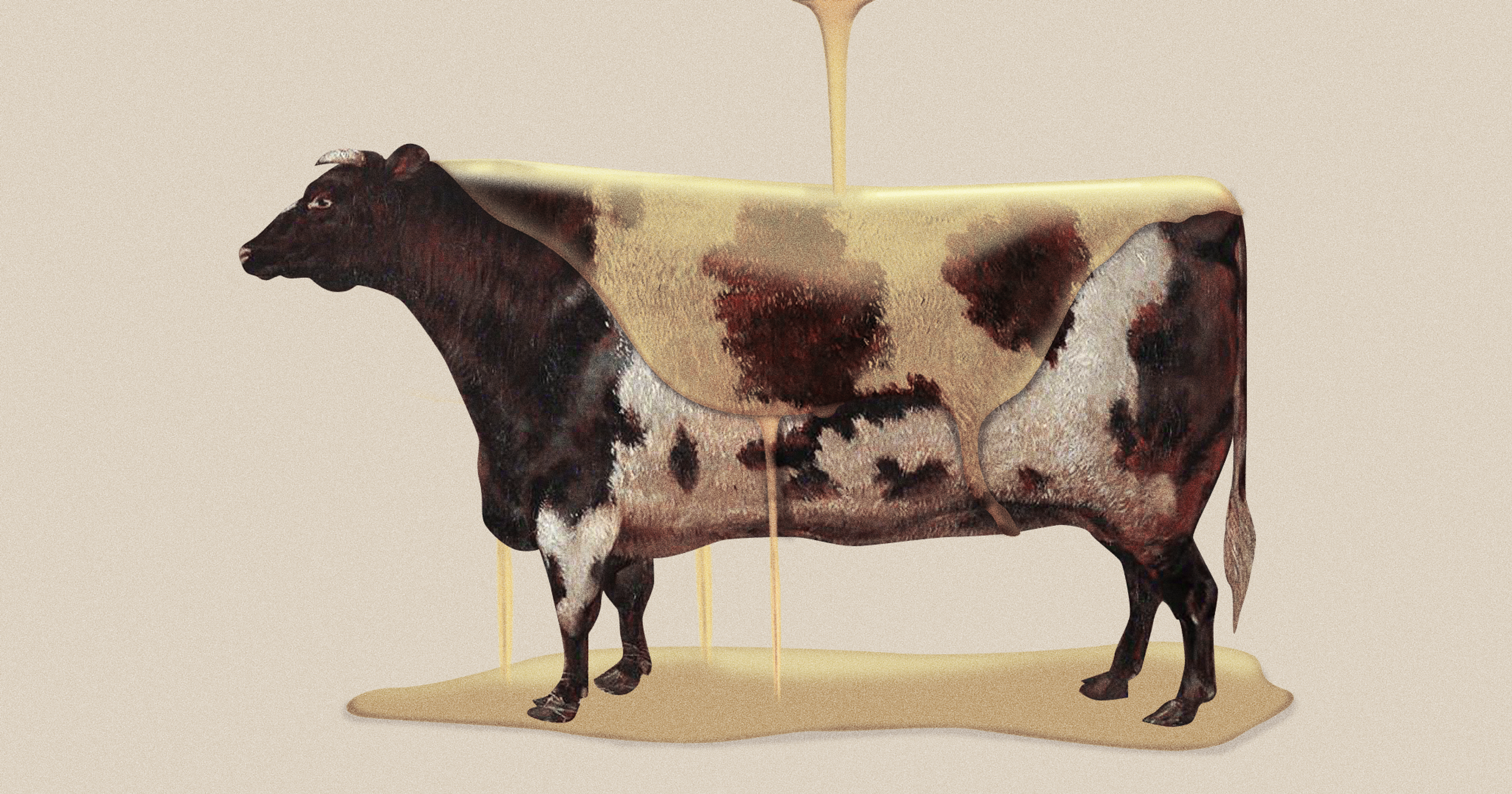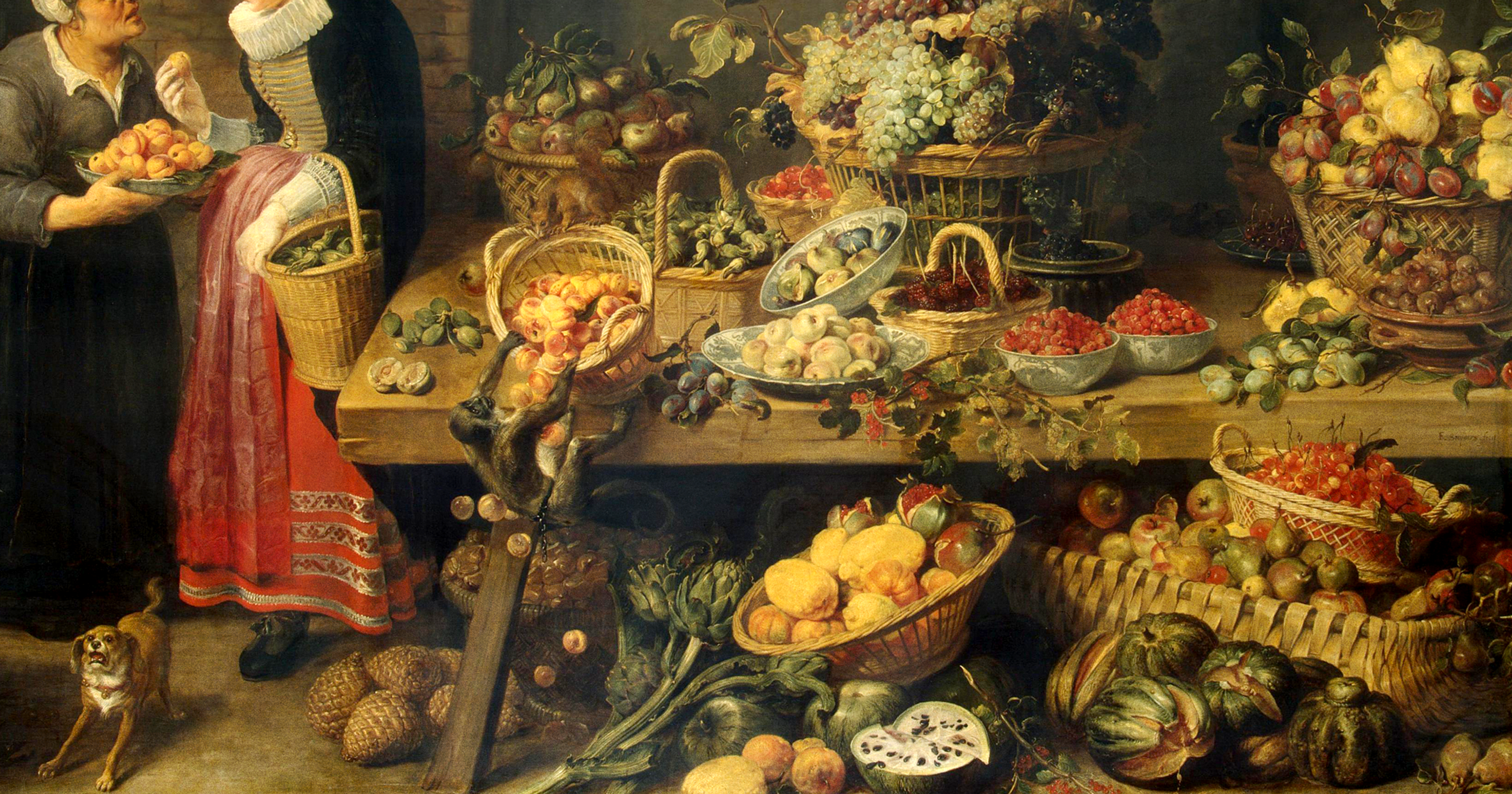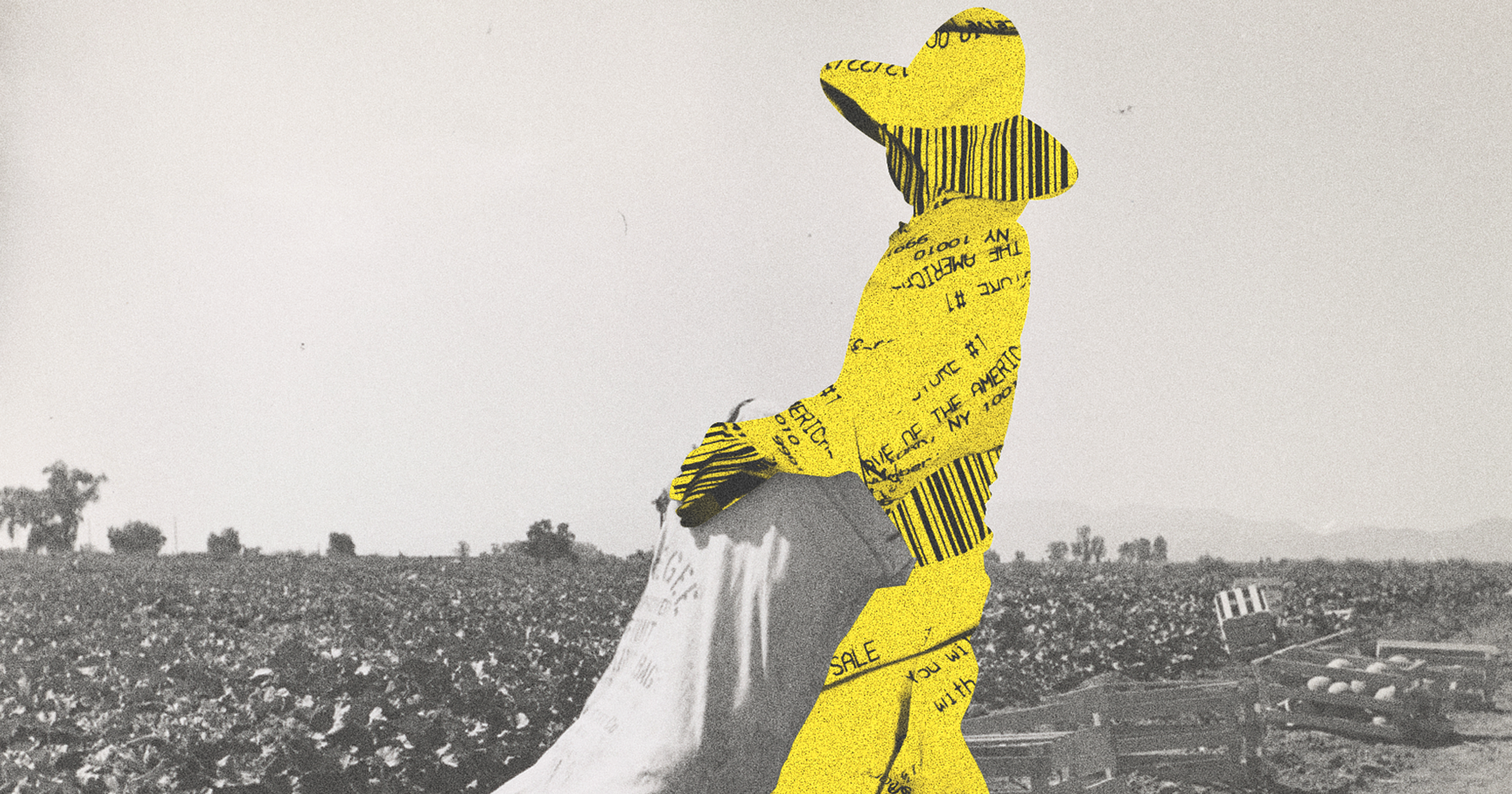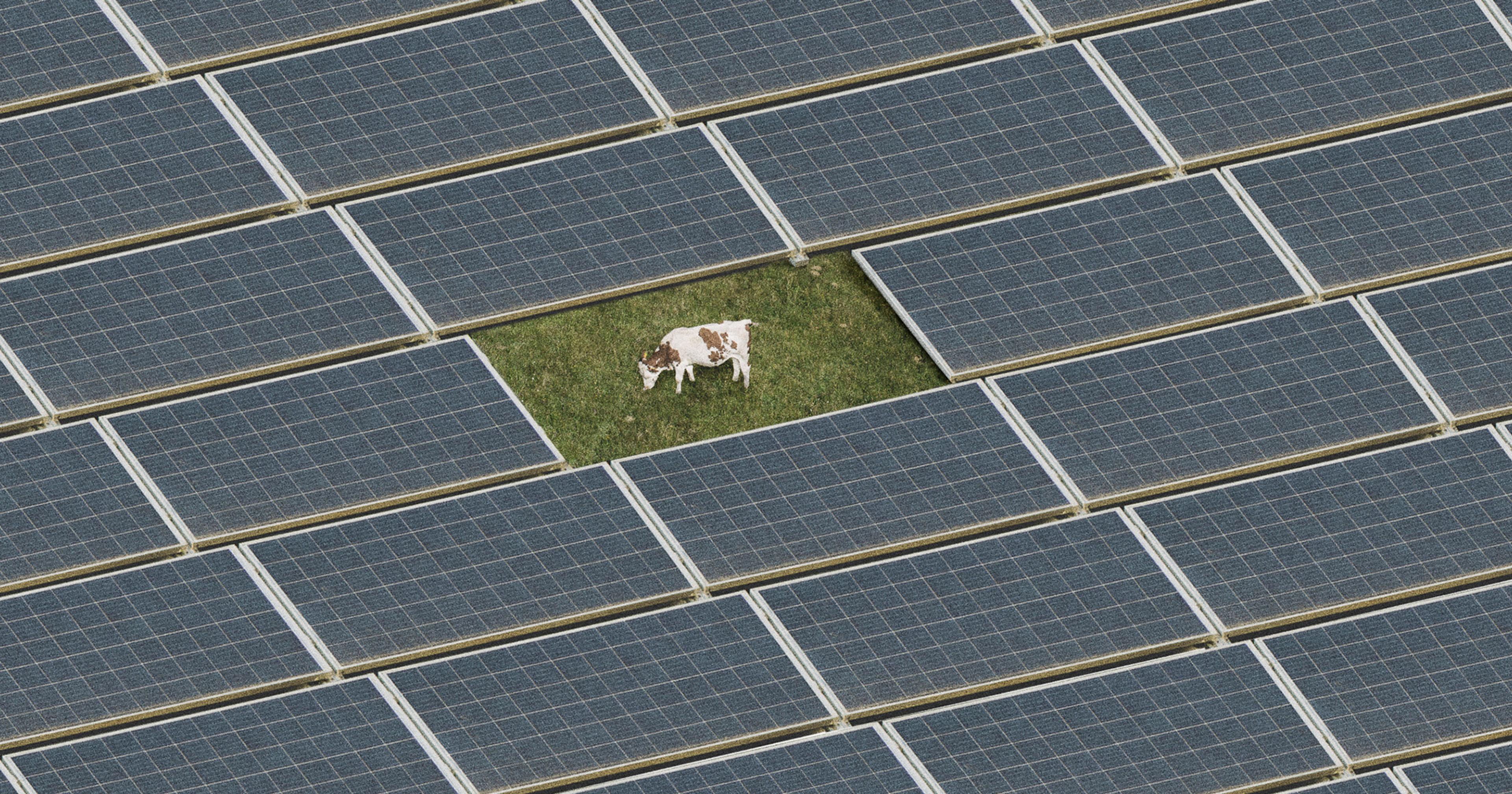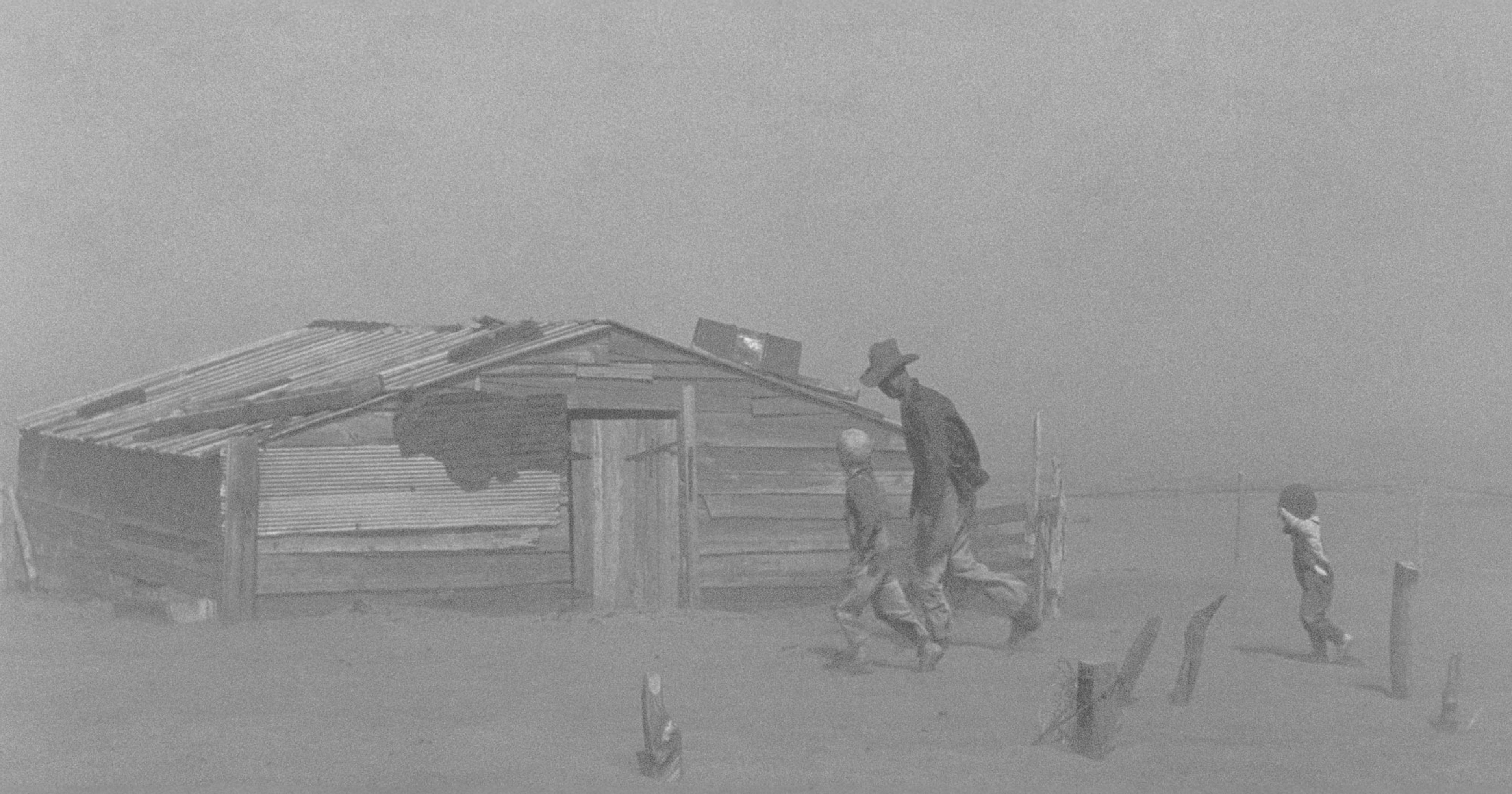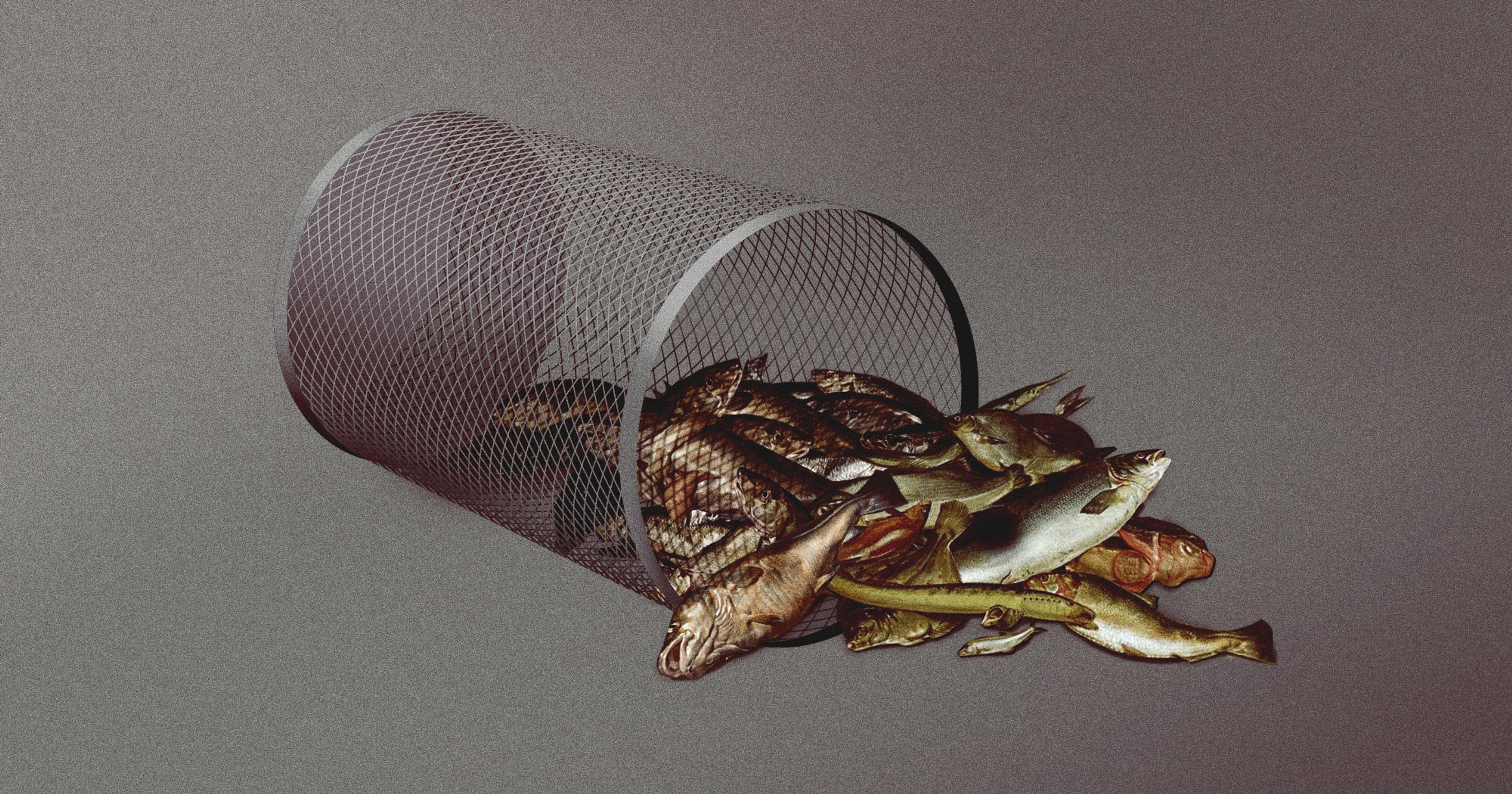Known for his polarizing views and massive contributions to regenerative agriculture, Joel Salatin has been called “the most famous farmer in America.” What are his thoughts about the next four years?
This is a Perspective piece and does not represent the views of Ambrook or this publication.
A rumor swirled in the immediate aftermath of Trump’s victory: Joel Salatin had been picked to serve as an advisor to the incoming Secretary of Agriculture. It was speculated that he would be counseling Thomas Massie, a Republican congressman from Kentucky who lives on an off-grid regenerative farm in the hills of Appalachia.
Neither of these reports proved true. Brooke Rollins, a Republican politico with little farm policy experience, was selected as agriculture secretary. Neither Massie nor Salatin were in the picture that emerged.
Salatin, one of the most well-known figures in the eco-farming movement, is part of a right-leaning current in the otherwise prevailing liberal culture of the scene. A successful Virginia chicken farmer, he gained prominence through his innovative techniques in animal husbandry, showing that it could be done sustainably, humanely, and profitably. He popularized these methods — and his name — with books like You Can Farm and Pastured Poultry Profit$. Alongside these farming how-to titles were others like Everything I Want To Do Is Illegal, a critique of the over-bureaucratization of our food system (including what Salatin sees as the overreach of child labor protections on farms).
Michael Pollan catapulted Salatin beyond the world of pastured poultry enthusiasts when he featured him prominently in his 2006 bestseller The Omnivore’s Dilemma. He is introduced in the book as a “self-described Christian-conservative-libertarian-environmentalist-lunatic farmer” — a collection of attributes that didn’t seem to cause much of a stir at the time. Perhaps this was due to the relatively depoliticized culture of the mid-2000s. Maybe Salatin’s off-farm views were a bit less front and center back then. Either way, in the last decade or so as America’s partisan lines sharpened, some in the regenerative agriculture scene grew wary of Salatin’s politics. By Inauguration Day 2025, he was planted firmly in the MAGA camp.
I spoke with Salatin last month. I wanted to get a sense of where he saw things heading for agriculture under Trump. On November 6 of last year, a day after Trump won, he penned a blog entry titled Celebration. In it, his optimism seemed unbounded. He wrote about a potential future where we would “eliminate ALL federal intervention in the food system, in farming.” A libertarian’s dream.
So what does Salatin think is on the horizon for our food system? His chances at directly affecting farm policy may have been scuttled, but does he still have hope that the new administration might usher in a revolution in agriculture, with RFK Jr — the lodestar of MAHA — at the president’s ear?
Over the hour and a half we spoke — he was generous with his time — our conversation meandered off the farm and into a wide range of controversial subjects. I’ve included italicized links to provide clarity and corrections when necessary.
Can you evaluate what we’ve seen so far with the second Trump administration, specifically on agricultural issues?
My bottom line sense is that the food and farm sector is going to sabotage the health sector. So you got RFK Jr. over here at Health and Human Services. You got Brooke Rollins over here at USDA. My sense is that she’s a bit of a lightweight in this space. So the question is, how’s she gonna get pushed around?
Obviously, the bird flu is front and center and we’re still seeing the extermination policy, the stamp out policy for surviving birds. We’ve killed 166 million chickens and probably only a million of them were sick. The rest of them were not sick. It’s insanity to kill the survivors, but that’s what we’re doing
I’m on a 12-person task force to try to create an anti-USDA bird flu policy that RFK Jr. can use as a bargaining chip in his discussions with Brooke Rollins. And my two primary suggestions on that have been: Don’t kill the survivors and allow the chicken owner to determine the remedy. Right now there’s only one remedy, kill them all. But there are lots of other remedies. There’s hypochlorous, there’s some homeopathic stuff. And you can do nothing. Sometimes it runs its course.
(Read why experts largely support the “stamping-out” policy of culling all birds on affected farms.)
It’s clearly 99% affecting factory farms. There are some backyard flocks that have gotten bird flu, but there are some really filthy backyard flocks that have a dirt chicken yard, dirt run, and some very old chickens. They’re being kept until they’re geriatric, which makes them much more vulnerable to bird flu as they get old. I went on a bit of a tear with the homesteading community — “Look folks, when that chicken hits four years old, put it in the stew pot.”
You mentioned the task force that you’re sitting on. Is this an official government task force?
No, that’s kind of an ad hoc group. We’re working directly with RFK Jr and just trying to provide him an alternative view. I can tell you this, that every single medical doctor that was de-platformed and censored over questioning Anthony Fauci about our COVID policies is in favor of eliminating the extermination policy in bird flu.
I know that you’re skeptical of vaccination regimens for animals. Are you similarly skeptical of vaccines for humans?
We don’t vaccinate any of our animals at all. And in humans, in general, I’m no-vax — vaccinations have not actually cured anything. Sally Fallon at Weston A. Price says, typhus and cholera, dysentery, diphtheria, whooping cough, those were all due to lack of sanitation. She says the plumbers and electricians are what stopped all those.
(It is estimated that childhood vaccines alone have saved over 150 million lives.)
The longer I live, the more I doubt the conventional narrative, why did we enter World War I? Why did we enter World War II? Why do we get the Federal Reserve? Why do we have an Internal Revenue Service? Why do we have the food safety inspection service that Teddy Roosevelt [started]? I call him “Rooseveltski,” because he was a socialist.
Why do we have these things? The longer I live, the more I realize that the official narrative generally obfuscates the real story. I’m completely skeptical of whatever the official narrative is. A guy was telling me the other day, “You know what the difference is between conspiracy and uncovering the real story? About 12 months.”
It seems like the vaccine skepticism and health food concerns of MAHA might make some ground in the governing MAGA movement. It does not appear that any of the regenerative agriculture aspects of MAHA have made any headway. If this trajectory continues, do you feel like your support for Trump was a miscalculation?
I don’t see my support of MAHA a la Trump being a miscalculation. The other side would have been way, way, way worse. Sometimes you take the lesser of two evils … I don’t think that was the case here. I’m thrilled with DOGE. I’d like to see the federal government down to about a tenth of its size. I’d like to see the USDA eliminated, Health and Human Services eliminated, Department of Energy, Department of Health, Department of Housing and Urban Development, IRS … I would eliminate just about everything except the military and I would close all of our foreign bases and bring all our soldiers home. I’m a Ron Paul guy, okay? Let’s be Switzerland. Let’s hoe our own garden and let the world mind its own business and not try to meddle in everything.
But I think that your assessment of the regen ag aspect of MAHA is absolutely dead on. It’s going to be thwarted by the industrial ag sector surrounding Brooke Rollins.
It was reported in the last couple of weeks that the USDA has been taking steps to strengthen the industrial agricultural system in a number of ways like providing economic relief payments to commodity growers and increasing line speeds at meat processing plants.
It’s just more of the same. It just shows that, in agriculture, we definitely have not turned the corner. I’m not in favor of any relief payments to any farmer at all. I’m not in favor of crop insurance. All that stuff is market manipulative. I mean, it helps wheat, but doesn’t help amaranth. Any time that you have marketplace intervention on the part of the government, whether it’s regulatory or beneficial, or concessionary, you incentivize the markets into places, that in a free market, they wouldn’t go otherwise.
The new administration has frozen funds to USDA programs which are aimed at helping small scale regenerative farmers and their allies. For instance, Pasa — a major service provider to farmers in Pennsylvania and the region — has had to furlough 60 of their 70 employees. Does this concern you?
Not at all. Bring it on. Bring it on. I think the sooner we wean the entire ag sector off the government’s nipple, the better off we’re going to be. We complain about crop subsidies and corn and soybeans and ethanol, but as soon as we get a chance at that trough, we’re guilty of the same. Just shut it all down. Shut it all down and I think we can compete very well.
You’ve long described yourself as a “Christian libertarian environmentalist capitalist lunatic farmer.” Do you think that the current regime offers a decent home for this kind of politics to flourish?
I do. The question will be, can we get to him? When people ask me, “If you could be king for a day, what would you do?” I always disappoint them and tell them, I’m a one string banjo, I’m a one string guy. My one solution is a food emancipation proclamation. And yes, that is strong language. But right now, our food and farm sector is enslaved, it is shackled by a regulatory structure that keeps us from being able to engage as neighbors in food transactions. If two consenting adults want to get together voluntarily and exercise freedom of choice on the fuel for their microbiome, we should be able to do that, we should be able to engage in that transaction without a bureaucrat involved.
I can’t imagine a more Trumpian idea. Can you imagine him standing up? “Today, I’m issuing a food emancipation proclamation!” That’s so Trumpian. I’ve told everybody that I know that I can get to, “I want 30 minutes with Trump.” If I had 30 minutes with Trump, to present this idea, I think he’d be all over it. It would unleash hundreds of thousands of homesteaders and small farmers and culinary artisans to our neighborhoods, our communities, our locales, to create entrepreneurial options. The fact is, Americans, we love choice. We’ve got choice in the bedroom, choice in the bathroom, choice in the womb, but no choice in the kitchen. And it’s time to rectify that. What good does it do to have the freedom to pray, preach, and assemble and own a gun, if you can’t choose your body’s fuel to give you the energy to go, shoot, pray, preach, and assemble.
In 2020, your long standing relationship with Mother Earth News was terminated by the magazine due to “a significant ideological impasse over political and social issues.” Have you found that your ability to speak to a more liberal crowd has diminished over the years?
Yes, I would say so. It used to be that it was much easier, but today’s partisanship and bifurcation have made it far more difficult. I will tell you, that break was very painful for me, I mean, I grew up on Mother Earth News as a teen, a young fella.
Let me back up a little bit. We homeschooled our kids before homeschooling was popular, back in the early ‘80s when they sent truant officers to take your kids away because you were being a negligent parent. And at that time, the entire homeschooling movement was dominated by liberals. It was very much a hippie anti-establishment holdover. “I don’t want my kids praying in the school.”
Well, then the 10 Commandments came down off the public school classrooms. And that awakened the kind of faith-based conservative element in America to rise up and say, “Whoa, wait, we don’t like the way this is going.” And here’s my point. In 1980, if you met a homeschooler, chances are they were, they voted Democrat. They were for, you know, abortion, blah, blah, blah. Today, if you meet a homeschooler, 90% chance they’re a conservative Christian faith-based kind of person.
We’re seeing the same thing, I believe, in the homestead movement. So, you know, you had the hippy, beaded, bearded, braless back-to-the-land-movement of the 1970s that spawned Mother Earth News. And we saw it on our farm as we started getting some media attention and some fame. People would come to visit and goodness, 75% of our visitors were liberal Democrats, “Coexist” on the license tag and that sort of thing. And we loved them and we got along fine. We were glad to have them interested in compost and not chemicals. And, you know, acupuncture and chiropractic and all the quackery, medical quackery.
And so, when Mother Earth News was developing these homestead fairs and capitalizing on that post-hippie revival of self-reliance and do-it-yourself-ism, back in let’s say, 2010, they were the big kahuna. I mean, they owned the space.
Well then 2020 ... we’ll never forget that year, that was a cultural year from hell, in my view, on so many fronts. And so, when I got canceled, what happened was, those camps split up, Mother Earth News deteriorated rapidly and completely embraced liberal [politics]. It outed them, I think. And I still love them. I don’t have any animosity.
What I’m going to get to is that when they exited the space as the big gorilla, suddenly it opened up oxygen for conservative faith-based homestead outfits to step up to the plate. And today, there are, I don’t know, 20 at least of these conservative faith-based homestead conferences around the U.S., maybe even 30. Seems like I go to 90% of them. And, you know, they’re not afraid to open in prayer. They’re not afraid to have a presenting of the colors. They’re not afraid to sing the national anthem on opening day. It is a revival.
This interview has been edited for length and clarity.

